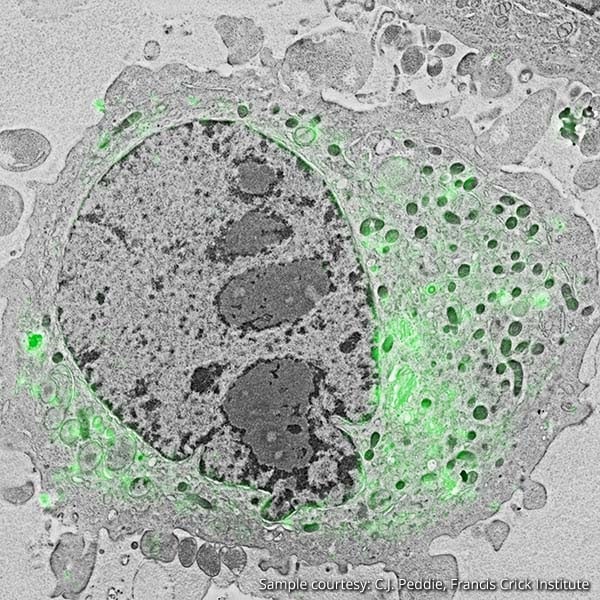Recently, we have published new content on our website regarding the application of CLEM for cancer research.
An integrated correlative system is beneficial for research on the development and spread of cancer because it allows the scientist to view rare and transient events such as invasion and metastasis at a high resolution. It also allows you to identify regions of interest within the broader context, opening up information about the behavior of cancer cells in the context of cell tissue.
The SECOM - Delmic's own integrated correlative light-electron microscopy system - has already contributed to research which sheds light on metastasis resulting from colorectal cancer. For some time now, the SECOM system has been used at the Francis Crick Institute for research on cancer.
If you would like to learn more, click here.
.png)






